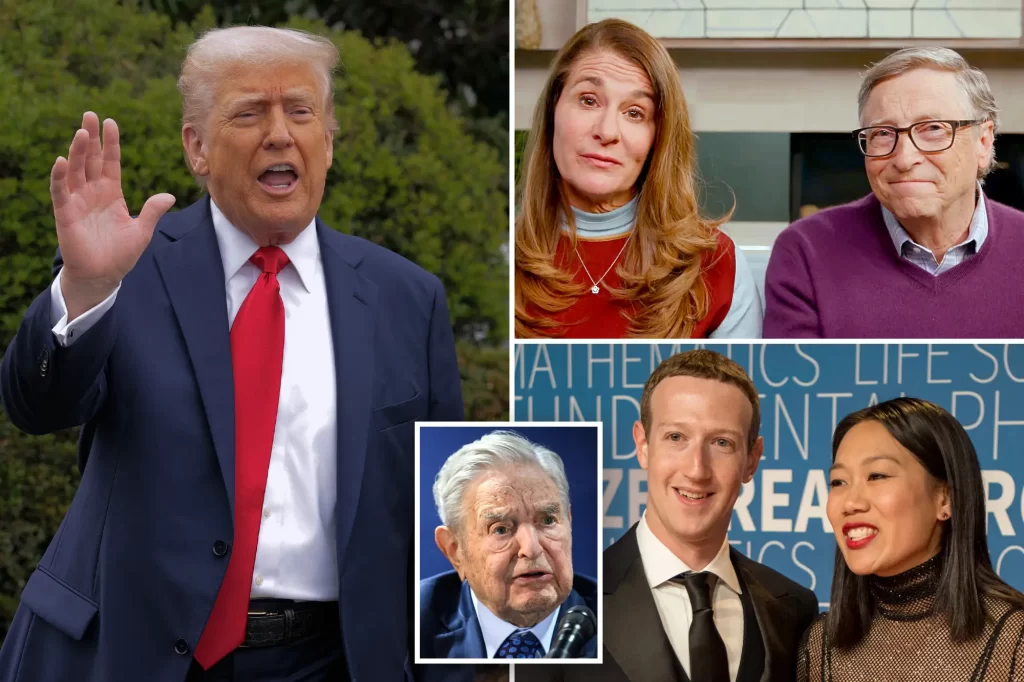
In a move that could dramatically alter the global nonprofit landscape, former President Donald Trump is reportedly considering a sweeping policy proposal that would ban U.S.-based nonprofit organizations from sending grant money to international recipients. This initiative, if enacted, would directly impact some of the most influential philanthropic organizations in the world, including those founded by Mark Zuckerberg, Bill Gates, and George Soros.
According to sources close to Trump’s policy advisers, the proposal is being framed as a nationalist measure aimed at keeping American charitable dollars within U.S. borders. Proponents argue that domestic issues such as homelessness, healthcare access, and educational inequality should take precedence over international development or humanitarian aid. “Charity should begin at home,” a Trump ally told reporters, suggesting that American taxpayers should not be subsidizing philanthropy that doesn’t directly benefit the United States.
At the center of the controversy are major nonprofit foundations with global reach. The Chan Zuckerberg Initiative, the Bill & Melinda Gates Foundation, and the Open Society Foundations have all poured billions of dollars into projects abroad, ranging from vaccine distribution in Africa to democratic institution-building in Eastern Europe. These groups argue that their international investments help foster global stability, fight disease, and uplift marginalized populations — missions that ultimately benefit the U.S. as well.
Critics of the proposed ban have expressed deep concern over the implications for international aid, public health, and diplomacy. “This would effectively cut off lifelines for millions around the world who rely on support from American philanthropies,” said a spokesperson for one major foundation. “It’s not just short-sighted — it’s potentially dangerous.”
Legal experts are also divided on the issue. While the U.S. government has the authority to regulate the tax-exempt status of nonprofits, outright prohibiting overseas grant-making could face significant constitutional and legal challenges. Such a move would likely be met with lawsuits and stiff resistance from the philanthropic community.
Still, the proposal aligns with Trump’s broader “America First” ideology, which during his presidency led to reduced funding for international organizations, the withdrawal from global agreements, and tighter restrictions on foreign aid. Some observers see this as a continuation of that agenda — using the tax code and nonprofit regulation to reinforce nationalist priorities.
As the 2024 election cycle heats up, this idea could become a prominent campaign talking point. Whether it becomes policy remains uncertain, but its emergence signals a deepening divide over the role of American philanthropy on the world stage — and a growing tension between global engagement and domestic focus in U.S. politics.




